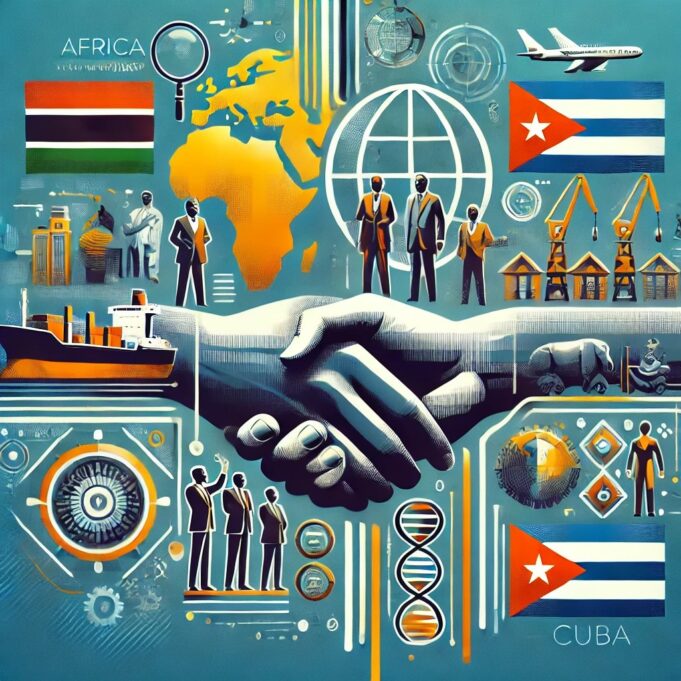A special commitment unites Cuba with Africa because through the blood of its children runs the blood of those human beings who were torn away from their lands and who made up one of the most shameful episodes of civilization: the slave trade.
With that certainty, the central act for the Day of the Mother Continent was held on June 10 in the emblematic Portocarrero Hall of the Palace of the Revolution, in the presence of the First Secretary of the Central Committee of the Communist Party and President of the Republic of Cuba, Miguel Díaz-Canel Bermúdez; as well as the president of the National Assembly of People’s Power, Esteban Lazo Hernández; and the vice president of the Republic, Salvador Valdés Mesa, both members of the Political Bureau.
Lazo Hernández expressed, during the ceremony, that Africa “is an indissoluble part of the very essence of our nation. By celebrating its day of homage, we recognize its rich history, values, and great cultural diversity, and we highlight its enormous potential, nobility, enthusiasm, and resistance of its people.”
In his words, the Cuban leader stressed: “We celebrate in this context the achievements of the African Union, depositary of the legacy of the Organization of African Unity, constituted 61 years ago,” and was emphatic: “Africa has been and will always be among us.”
For his part, His Excellency Nasser Mohamed Ousbo, ambassador of the Republic of Djibouti and dean of the African Diplomatic Corps accredited in Havana, expressed his sincere gratitude to the people and the Government of Cuba, “who have always been close to the African continent, to the point of sharing its joys and sufferings.”
On a subject he described as “capital,” the diplomat expressed his condemnation of “both the U.S. blockade and the inclusion of Cuba in the list of countries sponsoring terrorism.”—Alina Perera Robbio, Granma













